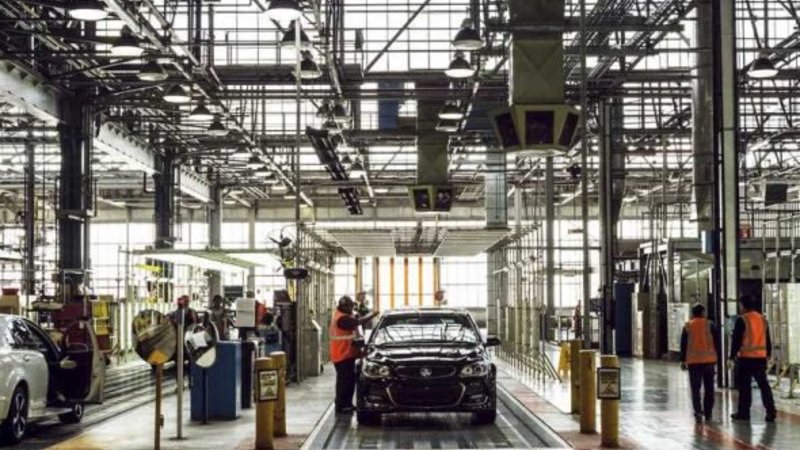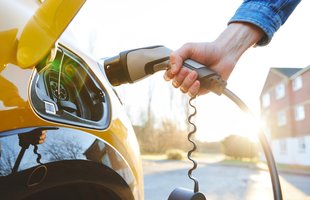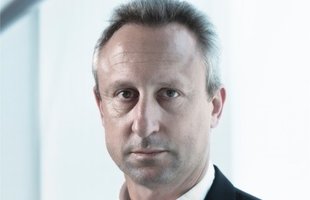UK-based billionaire Sanjeev Gupta is looking to buy equipment from and use part of the old Holden factory in South Australia to create an electric vehicle production line in what would be a remarkable transformation of Australia’s car industry and economy.
Gupta, whose GFG Alliance last year bought the OneSteel business in Australia with a view to powering the Whyalla and other steelworks with renewable energy and storage, has the backing of the South Australia government, keen to support what it sees as the “inevitable” transition to EVs.
The proposal to buy the disused GM assets would be a partial reprise of the Tesla story in California, which used an old factory in Fremont, once jointly owned by GM and Toyota, to launch its Tesla Model S electric vehicle.
Any EV production plant at GM’s former operations in Elizabeth, north of Adelaide, would likely source steel from Gupta’s newly acquired steel operations, and use renewable energy supplied by its newly merged SIMEC Zen energy business.
It would underpin Gupta’s plans to build 1GW of solar and storage capacity in South Australia – a state that already sources half of its electricity needs from wind and solar. Around half that capacity is earmarked for Whyalla Steel, but the remainder is looking for other big energy users.
An EV plant would fit the bill perfectly, and would minimise the life-cycle emissions of any EV built there, given the power sources to manufacture the plant, and to provide the electricity to charge the EV batteries.
The development, revealed by the Adelaide Advertiser, comes as conservatives within Australia’s Coalition government looked to extend their campaign against renewable energy to include EVs, arguing that EVs in some state would create more emissions than petrol and diesel cars.
Australia stands almost unique in the western world for its lack of emission standards on vehicles, meaning it has become a dumping crowd for polluting vehicles and has an incredibly low take-up of EVs.
The letter written by South Australian treasurer Tom Koutsantonis to GM Holden, also obtained by RenewEconomy, asks GMH to support Gupta’s plans, which is to ” develop the site as a manufacturing base” for EVs, using “innovative i-Stream technology”.
The letter, dated January 17, further says:
“We are incredibly excited and supportive of the GFG Alliance’s bid and subsequent plans to ensure the continuation of our very proud history of automotive excellence and innovation in South Australia.
“We believe that the GFG Alliance’s plans would put South Australia at the forefront of the inevitable transition of the Australian market to electric vehicles and ask that all due consideration be given to their bid and the potentially significant benefits to the automotive industry and broader community in South Australia.”
The I-Stream technology was developed by ex Formula 1 designer and engineer Gordon Murray. It stands for Stabilized Tube-Reinforced Exoframe Advanced Manufacturing.
According to this article, it replaces stamped steel with a composite monocoque bonded to a tubular steel frame and plastic bodywork. The result, it says, is a factory that requires 80 per cent less capital investment and 60 per cent less energy,
Gupta is proving to be something of a nightmare for the ideologues and technology troglodytes in the Coalition government and much of the conservative media, upturning all their prejudices about clean energy and new smart technologies.
Gupta has insisted that supplying the Whyalla steelworks with renewable energy – solar, pumped hydro, battery storage and demand management – is critical to reverse its fortunes of the ageing Whyalla steelworks and make it profitable.
The plan is a direct rebuttal of claims that renewable energy would be the death of manufacturing and energy intensive businesses in Australia. Numerous big energy users are now turning to wind and solar to slash their electricity costs.
Gupta intends to take the same model to his even more energy intensive operations in Victoria and NSW, which he also bought as part of the OneSteel package.
Gupta has teamed up with Zen Energy, now SIMEC Zen, to provide electricity to the South Australia government pending the construction of the new solar tower and storage facility in Port Augusta. SIMEC Zen’s contribution will be renewable once its new solar plants and storage are built.
The Australian on Monday, however, ran as its lead article a push by conservatives within the Coalition to fight any incentives for EVs in Australia, apparently on the highly debatable claim that EVs would create more pollution than petrol and diesel cars.
Of course, the emissions on an EV depend on the electricity it sources. The same factions within the Coalition – led by the likes of environment committee chair Craig Kelly, and Nationals MPs Andrew Broad and John Williams – are fighting to stop the growth of renewables.
“The risk here is you’ll have the rich person in Balmain buying a Tesla, subsidised by a bloke in Penrith who’s driving a Corolla,” Kelly told The Australian.
“And the Tesla will have more carbon emissions than the Corolla.”
A joint submission by the CSIRO, network providers such as Transgrid and Ergon, generation companies such as AGL, and a host of others, found that a first generation Nissan Leaf would deliver cleaner outcomes NEM-wide than a regular petrol car.
But under the scenarios outlined by the Climate Change Authority to meet Australia’s commitment to the Paris climate treaty, then a first generation Nissan Leaf would beat even a Toyota Prius hybrid by 2020, and achieve emission intensity of below 30 gCO2/km by 2030.
That figure, it should be noted, is NEM-wide. In some states, the emissions would be much lower.
However, the threats by the Coalition’s Far Right element, and the description in Murdoch media of EV incentives or emissions caps as some form of carbon tax has put the terrors into prime minister Malcolm Turnbull and energy minister Josh Frydenberg.
Turnbull had marvelled at the benefits of EV technology during a visit to the Tesla factory in 2015 – and hailed the very EV revolution that South Australia is pursuing – but that was before his pact with the conservative faction that elevated him to the Lodge.
Frydenberg has admitted that Murdoch headlines are helping to shape Coalition policy.






